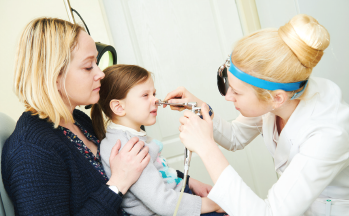When reports emerged that three patients had experienced facial swelling after receiving the Moderna vaccine some people began expressing hesitancy to receive the vaccine.



Out of the confusion of the COVID-19 pandemic have come sweeping responses, re-imagined approaches to care, and research advances, with questions still to be answered and the lasting effects still to be seen.

A new clinical trial aims to find out if sentinel lymph node biopsy or elective neck dissection is the best management option for early-stage oral cancer.

As evidence linking hearing loss to cognitive decline mounts, researchers and clinicians are starting to explore whether automated, self-administered cognitive screening tests should be added to routine workups of patients seen in busy otolaryngology practices.

Panelists at the virtual Combined Otolaryngology Spring Meetings discussed the benefits and risks of social media for physicians and whether social media posts should be assessed when evaluating applicants for residency and other positions.

From infectious illnesses in steep decline due to COVID-19 to a new subcertification category, leaders in pediatric otolaryngology discussed trends in the field during the Combined Otolaryngology Spring Meetings.

The pandemic has had far-reaching effects on research and may affect protocols for years to come.

During the virtual Combined Otolaryngology Spring Meetings (COSM), Dr. Osterholm delivered a sobering talk underscoring the potentially dire effects that new SARS-CoV-2 variants could have.

During a panel at the virtual Combined Otolaryngology Spring Meetings (COSM), physicians discussed how they’ve reimagined meetings and put together live training sessions with precautions.

Phone-based technologies can make it easier for patients and providers to communicate on a variety of issues, ranging from reminding patients of clinical visits to more novel uses that facilitate intervention for specific conditions.